
Well-developed characters are like people: they have traits, opinions, and motivations. Characterizations are the methods by which story tellers reveal the traits of characters. There are two types of characterizations: direct and indirect. Direct characterization is when a narrator or character describes another character directly. Indirect characterization is when character traits are revealed through a character's behavior.
Most of my characterization worksheets deal with indirect or implicit characterizations. Recognizing these characterizations is a higher order thinking skill, whereby the student must make an inference based on textual details. These free characterization worksheets will help students better understand characterizations and ultimately become better readers.
Characterization Lesson 1Looking for a lesson on characterization? Check out this awesome slideshow. It explains direct and indirect characterizations and gives students examples of each. It also includes five practice problems at the end. Check it out!


 or send the files as-is." />
or send the files as-is." />

Are you looking for a PowerPoint slideshow to help students review character types? This lesson teachers about character that are STATIC, DYNAMIC, FLAT, ROUND and MORE. It includes a practice activity after the lesson. You'll love it.


 or send the files as-is." />
or send the files as-is." />

Here is a worksheet to help students practice characterizations. Students read ten short examples of character interactions. They identify an indirect character trait in each and explain their answers by referencing the text.
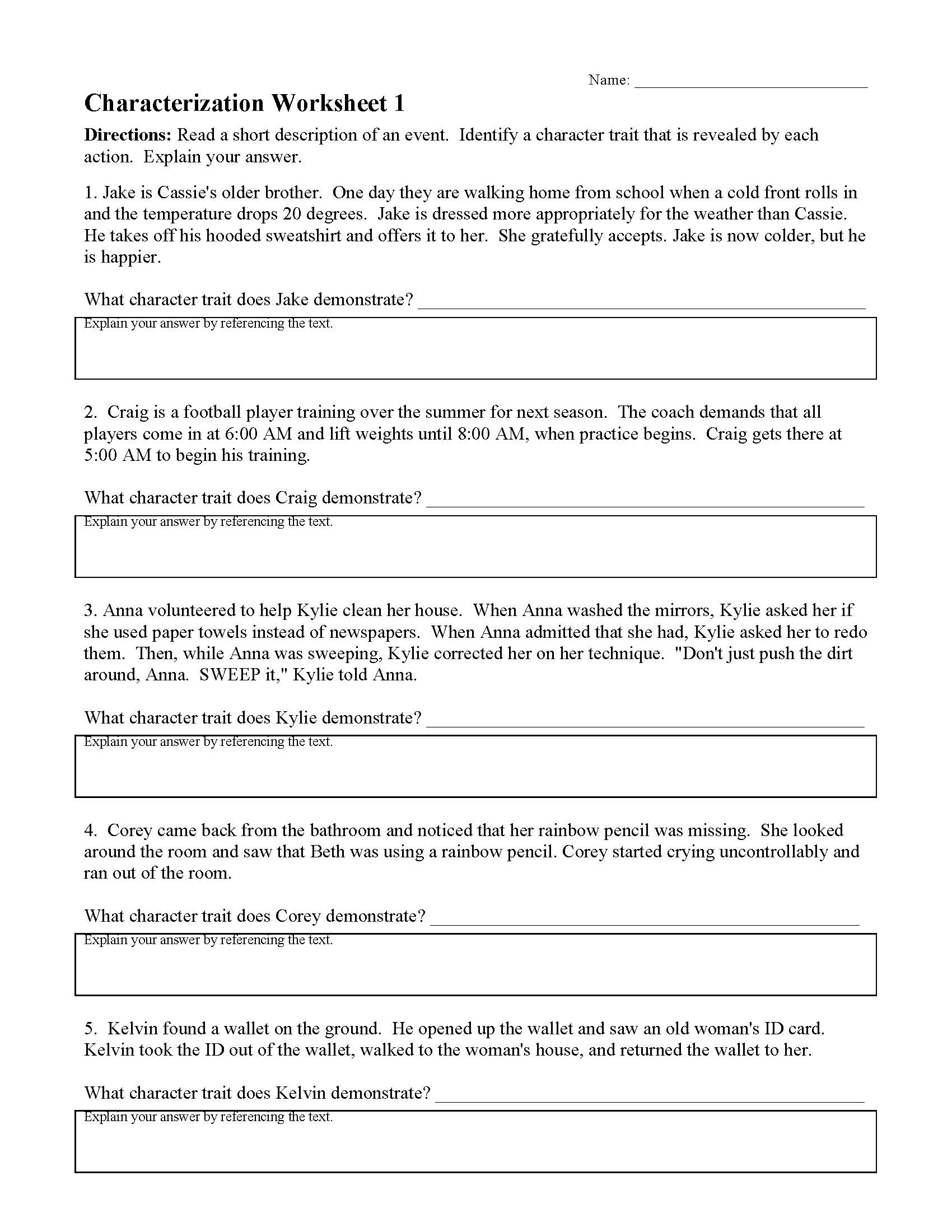


 or send the files as-is." />
or send the files as-is." />
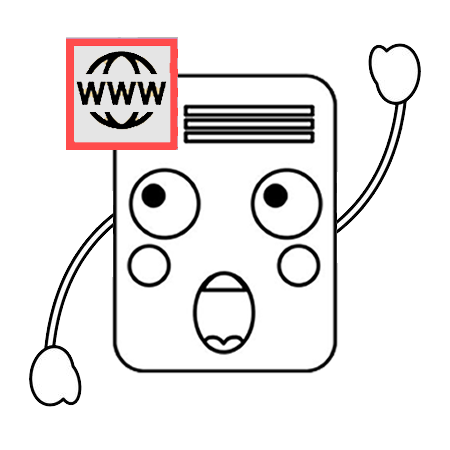

Here is another worksheet to help students practice identifying characterizations. Students read ten short passages. They identify an implied character trait in each. Then they explain their answers using text.
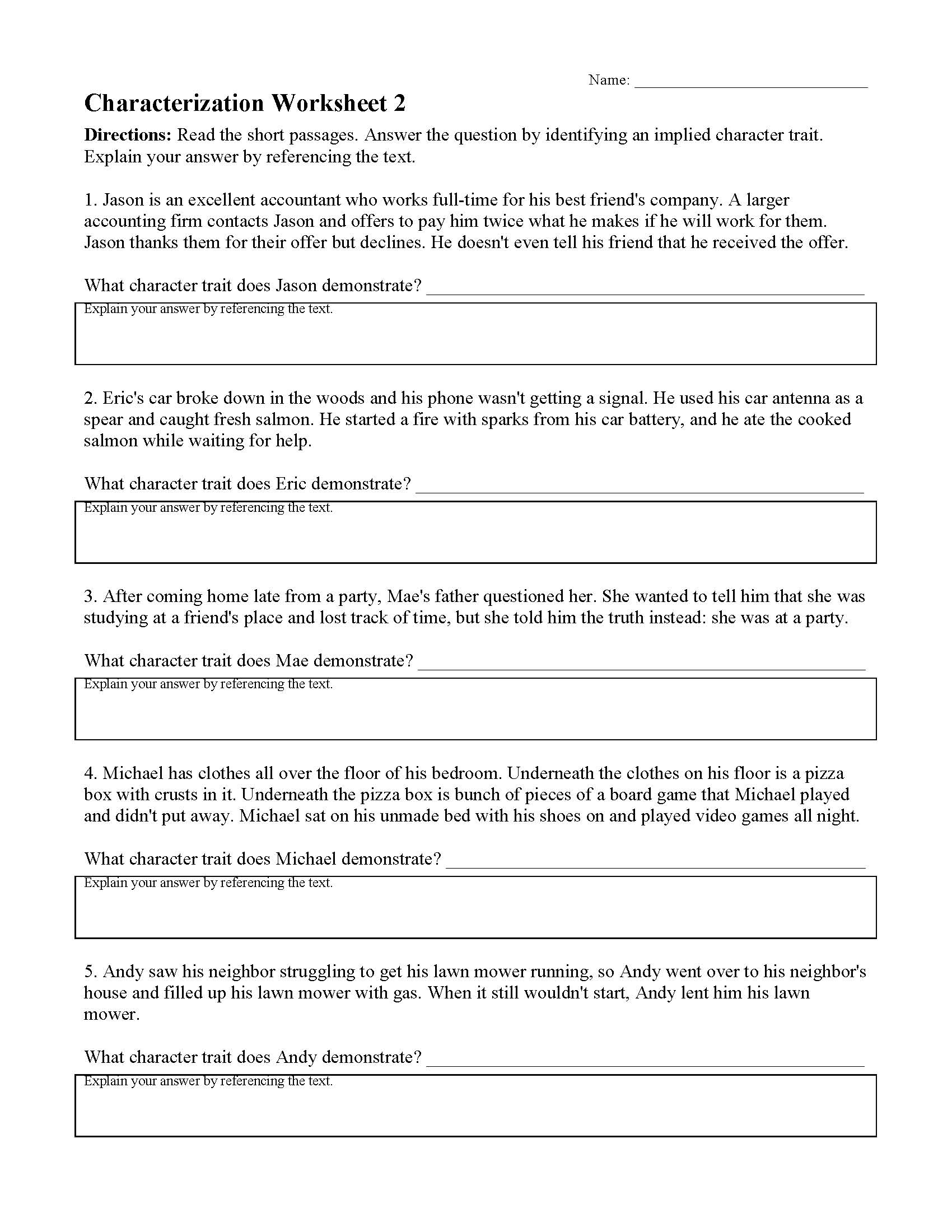


 or send the files as-is." />
or send the files as-is." />


Here is yet another characterization worksheet to give students ample practice with this core reading skill. This worksheet has got another ten more problems. Students must identify characters' traits based on their actions in each. Then they explain their answers using text. This worksheet is great for homework or class work.
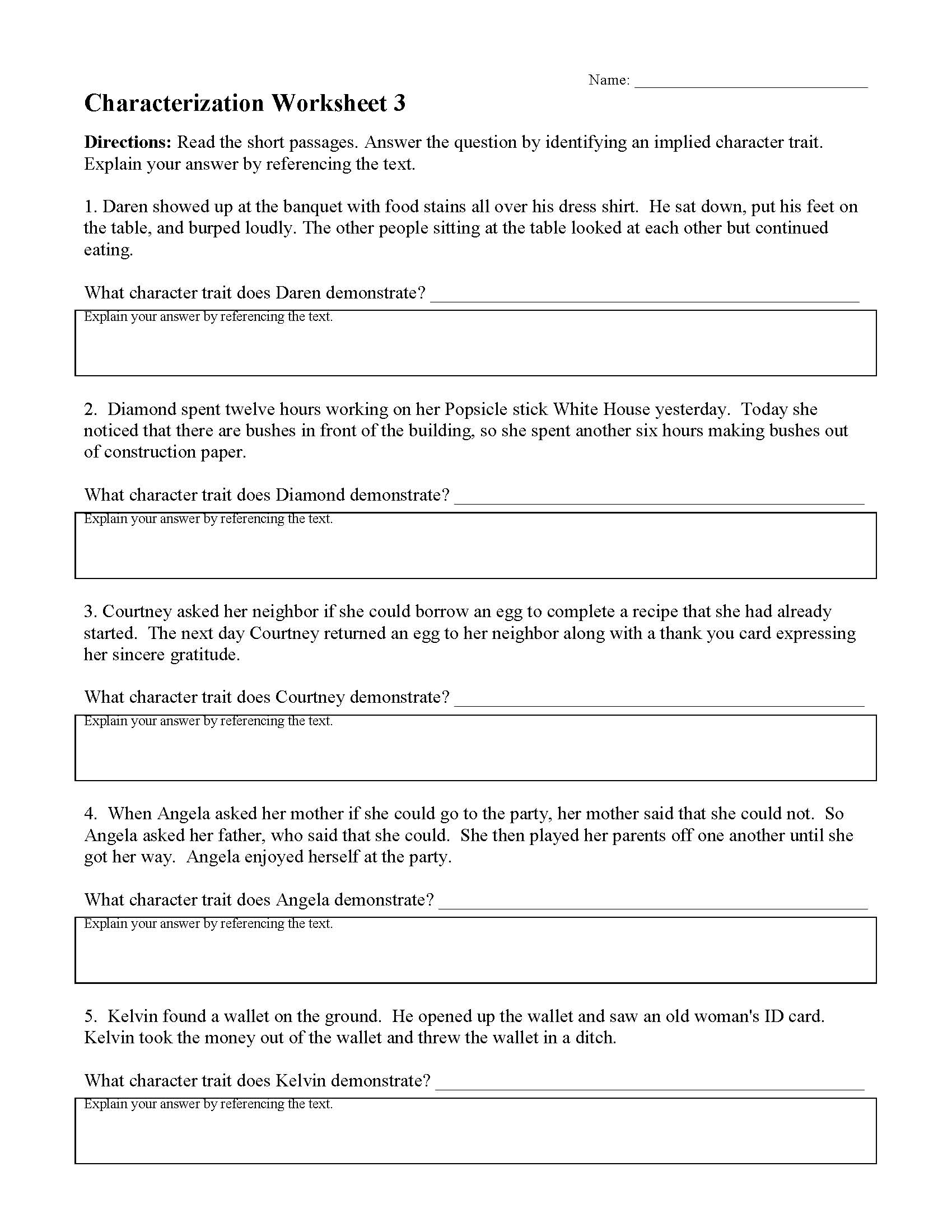


 or send the files as-is." />
or send the files as-is." />


Still looking for practice with characterizations? This worksheet has ten new short paragraphs. Students must identify an implicit character trait in each. Then they must refer to the text to explain their answers, which adds a critical thinking component to this assignment.
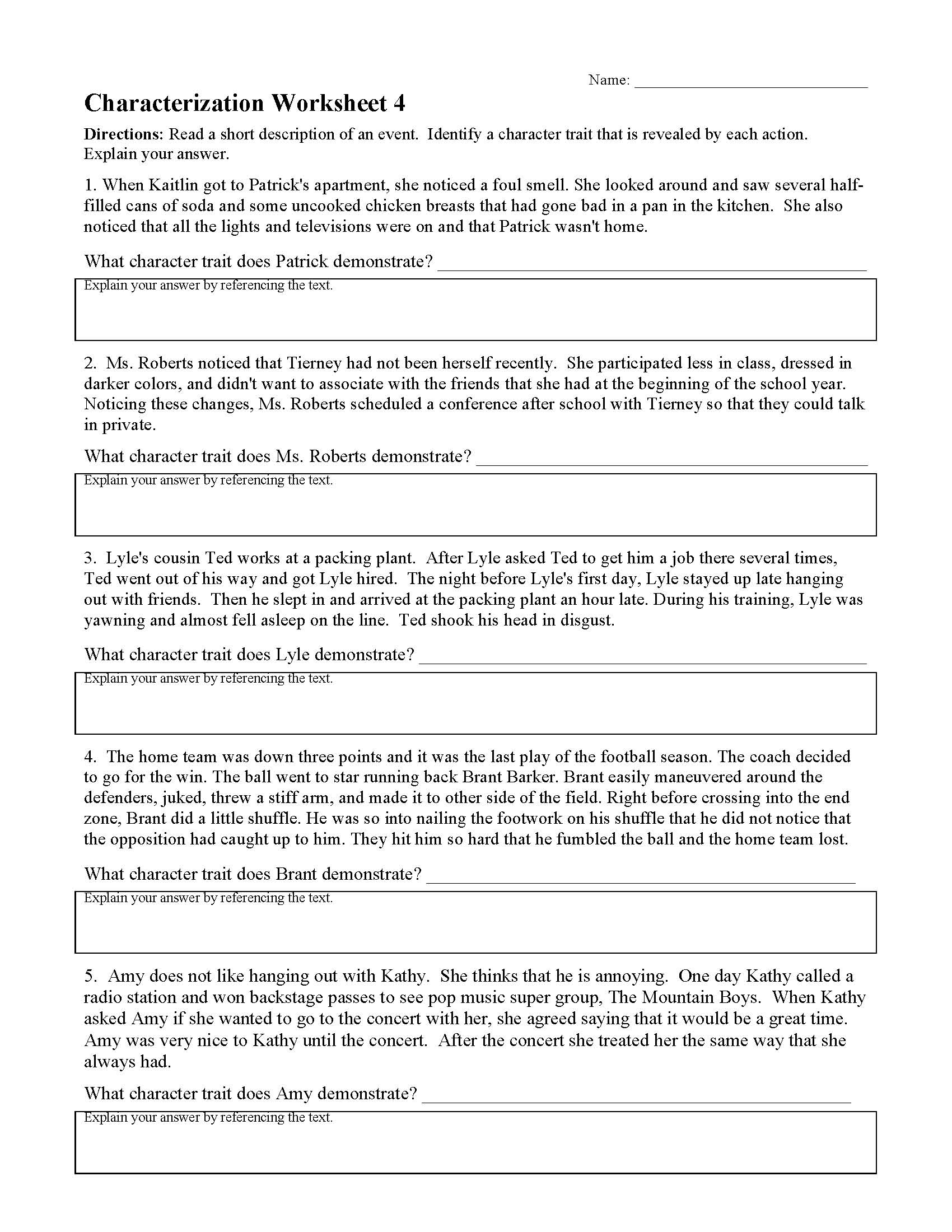


 or send the files as-is." />
or send the files as-is." />


Practice identifying round, flat, and static characters. Students read a short piece of fiction about a girl who stands up to a bully. Then they identify the types of characters in the story and explain their answers.
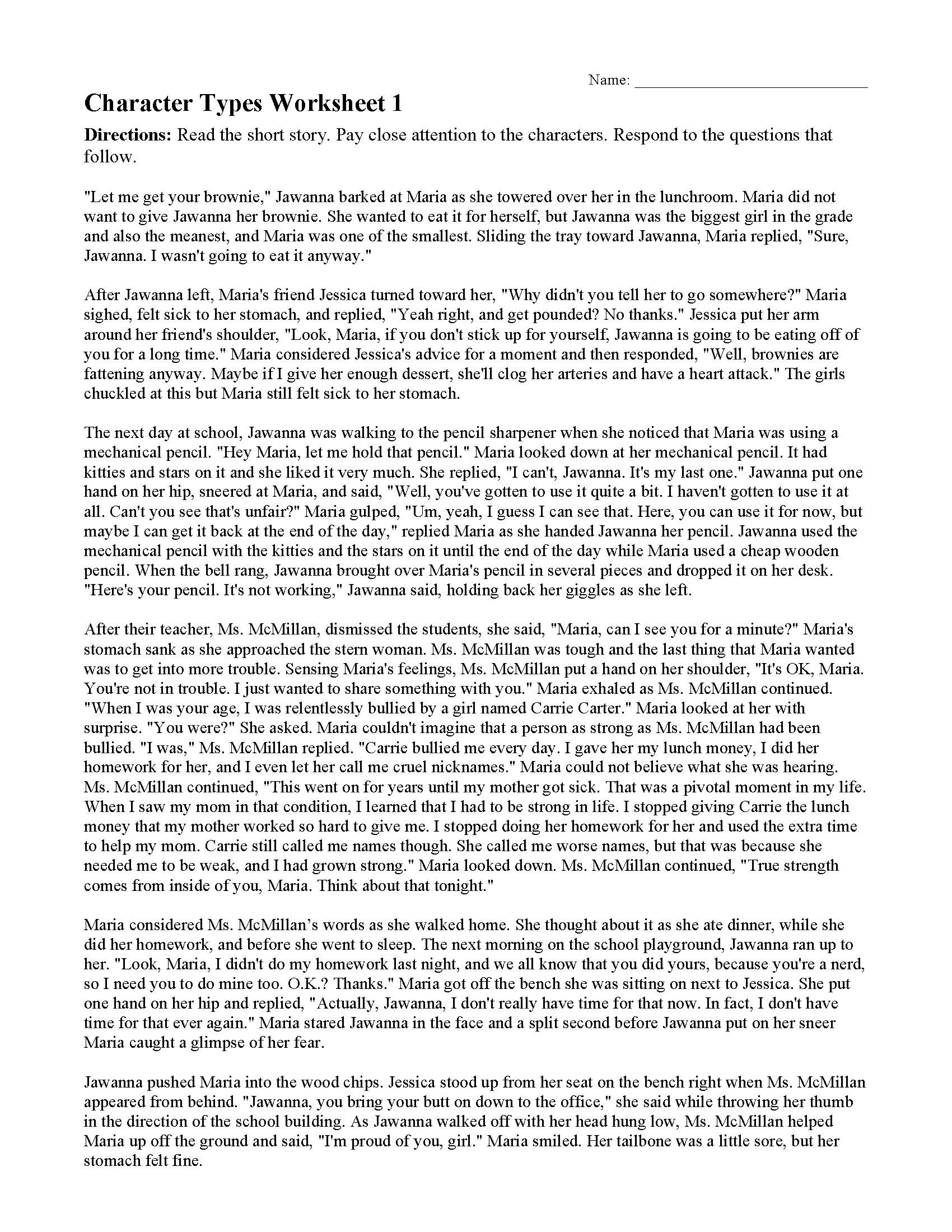


 or send the files as-is." />
or send the files as-is." />


Did you need more practice with character types? Here is another character types worksheet. Read the short story about a cruel factory owner. Analyze the characters then answer the questions about character types. Suggested reading level for this text: Grade 4th-8th.
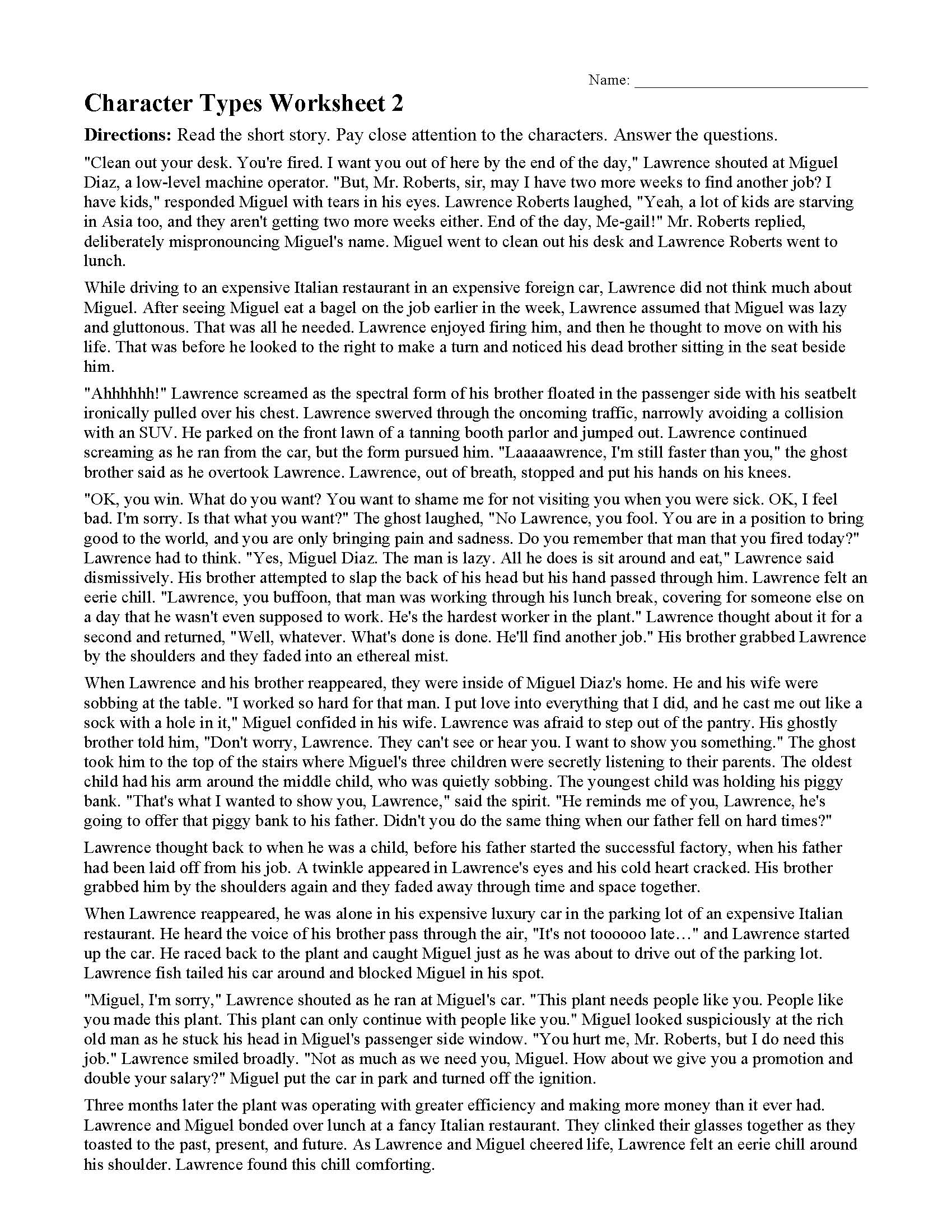


 or send the files as-is." />
or send the files as-is." />


Here's a fun activity to give your students some practice thinking of how to show indirect characterizations. Students define challenging character trait words, then write actions that would demonstrate each character trait. Feel free to edit this worksheet to add your own character traits.
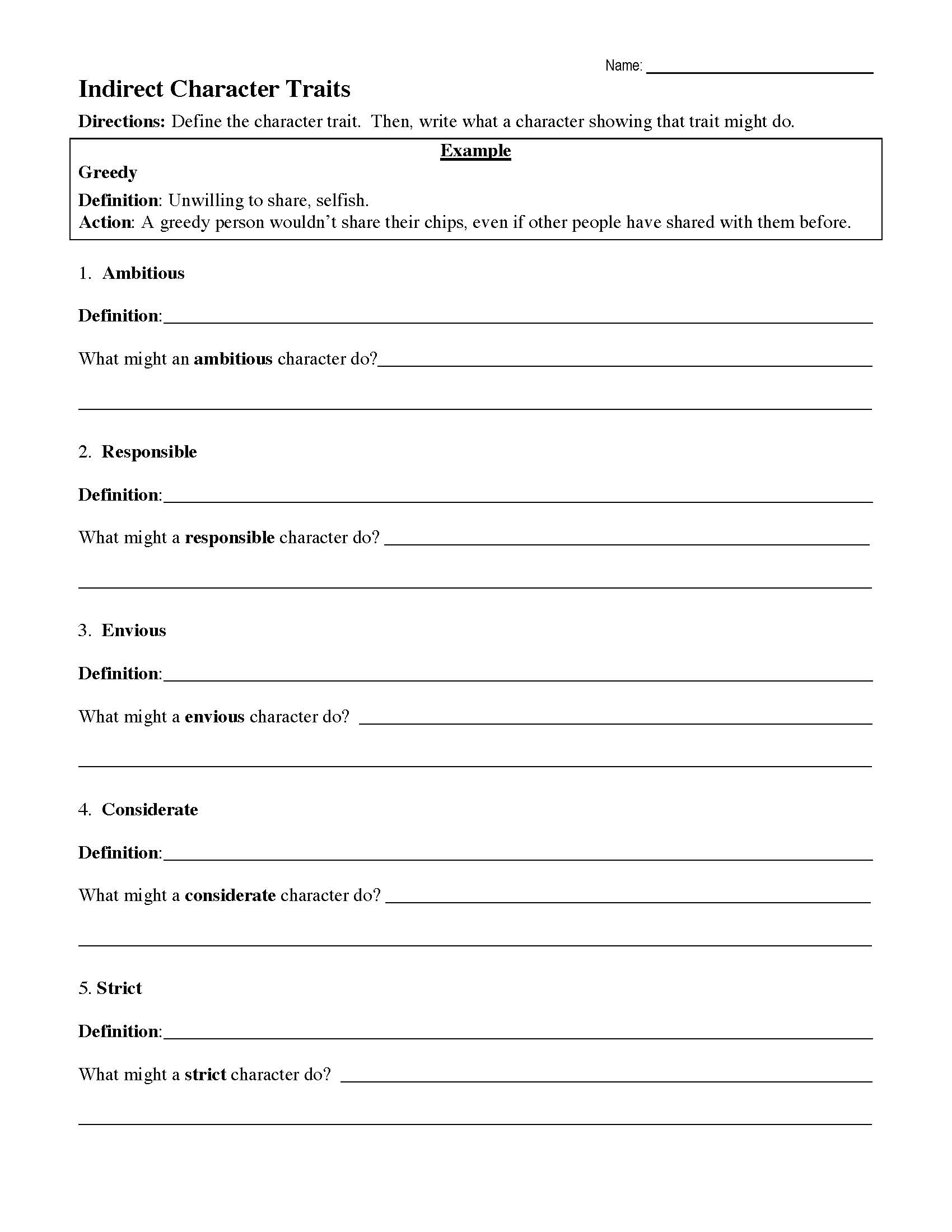


 or send the files as-is." />
or send the files as-is." />
Here is a fun group project to give students practice with character traits; Students take one of four roles and look up challenging character trait words. They then illustrate examples of the term that show its meaning.
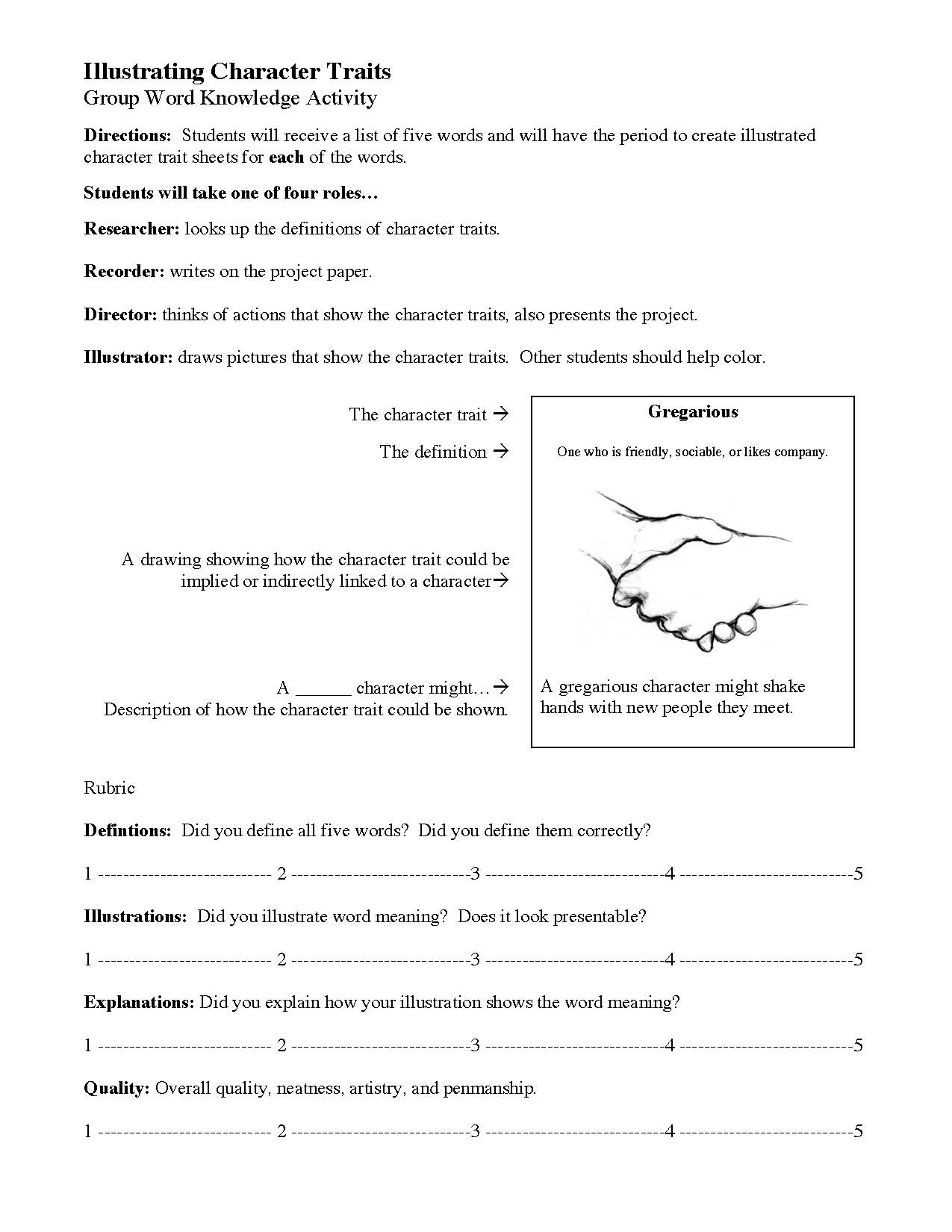


 or send the files as-is." />
or send the files as-is." />
Here is a creative, student-centered activity to give students practice with implicit character traits. This assignment can pair with any story that you are reading. Students illustrate character behavior and explain what character trait is shown.
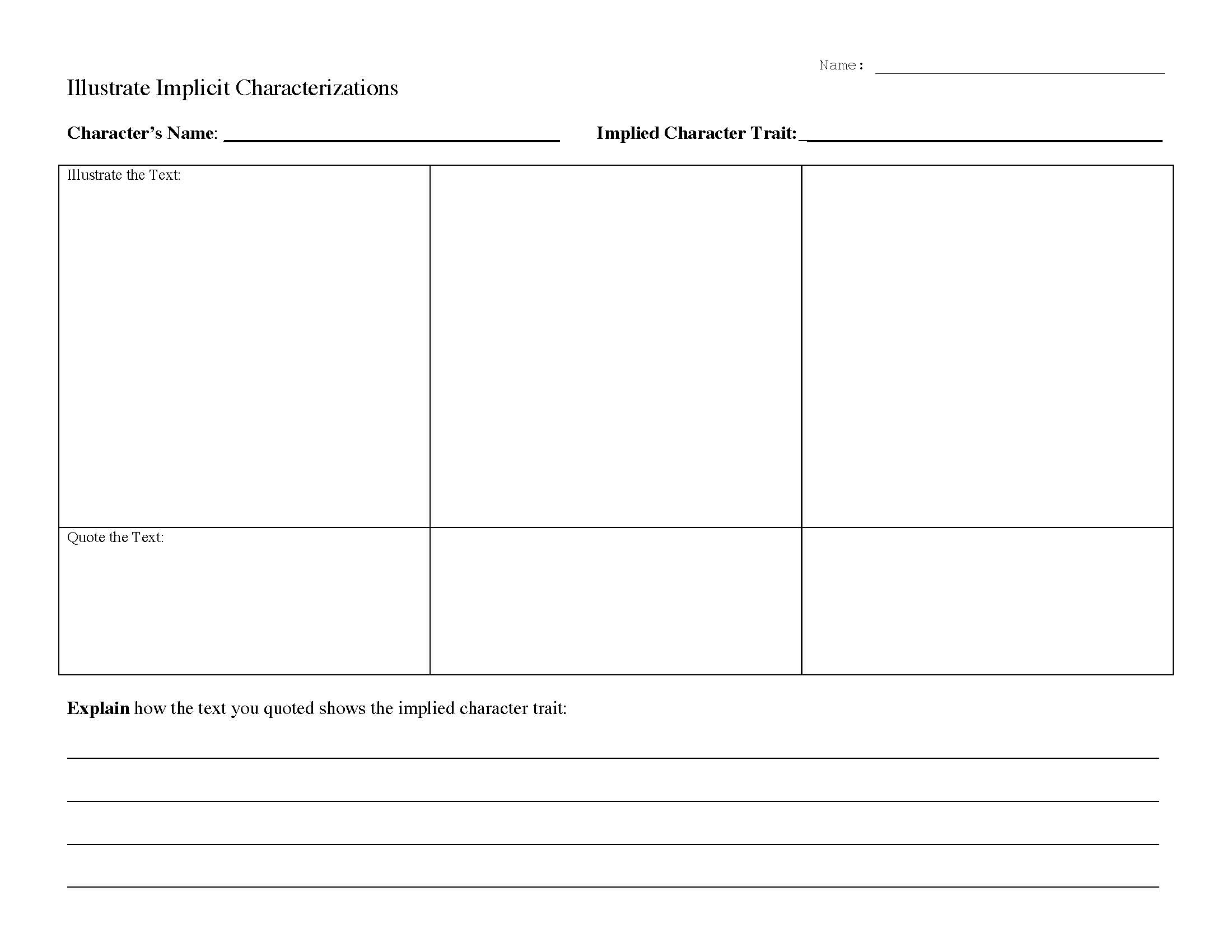


 or send the files as-is." />
or send the files as-is." />
Here is a great list of 250 character trait words. You can use these words to help students increase their characterization vocabularies. It also goes well with my student-centered projects and activities on characterizations.
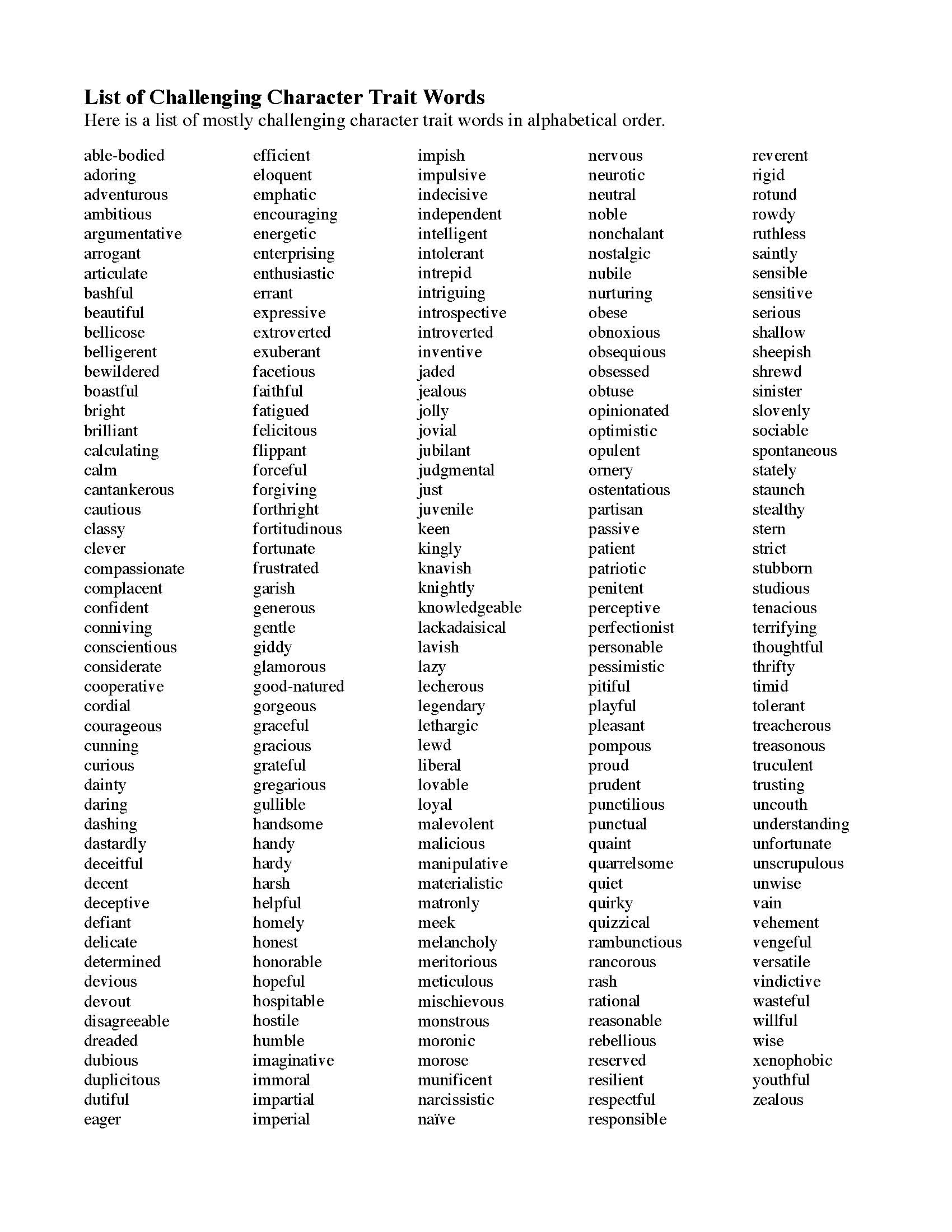


 or send the files as-is." />
or send the files as-is." />
Looking for student-centered characterization project? Check this out! Students define character trait words and then think of actions that would implicitly show each character trait. This project requires critical thinking and is a great way to expand students' character trait vocabulary.
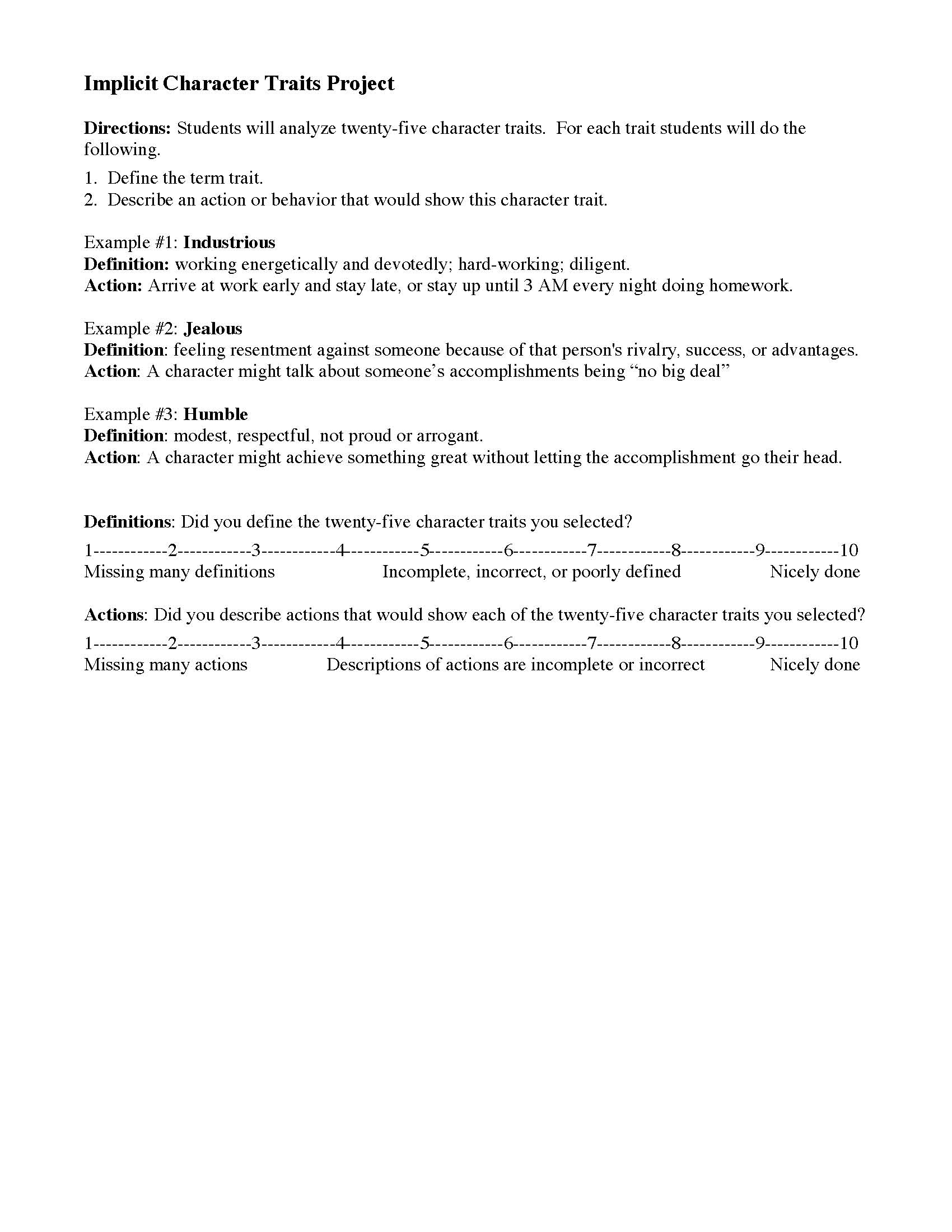


 or send the files as-is." />
or send the files as-is." />
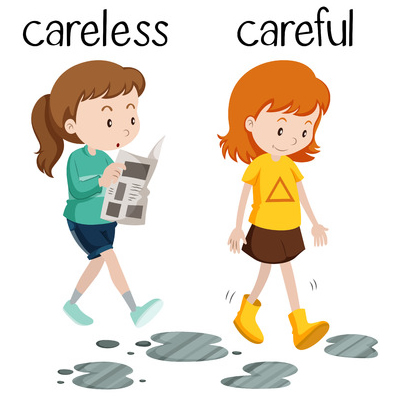
R.3 - Analyze how and why individuals, events, or ideas develop and interact over the course of a text.
RL.K.3 - With prompting and support, identify characters, settings, and major events in a story.
RL.1.3 - Describe characters, settings, and major events in a story, using key details.
RL.2.3 - Describe how characters in a story respond to major events and challenges.
RL.3.3 - Describe characters in a story (e.g., their traits, motivations, or feelings) and explain how their actions contribute to the sequence of events.
RL.4.3 - Describe in depth a character, setting, or event in a story or drama, drawing on specific details in the text (e.g., a character's thoughts, words, or actions).
RL.5.3 - Compare and contrast two or more characters, settings, or events in a story or drama, drawing on specific details in the text (e.g., how characters interact).
RL.6.3 - Describe how a particular story's or drama's plot unfolds in a series of episodes as well as how the characters respond or change as the plot moves toward a resolution.
RL.7.3 - Analyze how particular elements of a story or drama interact (e.g., how setting shapes the characters or plot).
RL.8.3 - Analyze how particular lines of dialogue or incidents in a story or drama propel the action, reveal aspects of a character, or provoke a decision.
RL.9-10.3 - Analyze how complex characters (e.g., those with multiple or conflicting motivations) develop over the course of a text, interact with other characters, and advance the plot or develop the theme.
RL.11-12.3 - Analyze the impact of the author's choices regarding how to develop and relate elements of a story or drama (e.g., where a story is set, how the action is ordered, how the characters are introduced and developed).
R.7 - Integrate and evaluate content presented in diverse media and formats, including visually and quantitatively, as well as in words.
RL.1.7 - Use illustrations and details in a story to describe its characters, setting, or events.
RL.2.7 - Use information gained from the illustrations and words in a print or digital text to demonstrate understanding of its characters, setting, or plot.